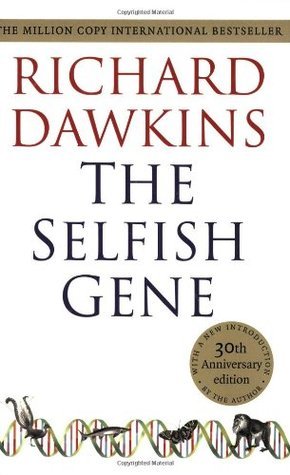
The Selfish Gene
Book Description
Life is a ruthless game of survival, where genes play the ultimate power move. Richard Dawkins revolutionizes our understanding of evolution, proposing a bold idea: it’s not the species that matter, but the relentless waves of our selfish genes driving the cycle of life. With groundbreaking insights into natural selection, altruism, and the dark truths of existence, this thought-provoking journey reveals the hidden machinations behind cooperation and competition in the animal kingdom. How far will these tiny, unseen architects go to ensure their legacy? Dive into "The Selfish Gene" and discover the shocking truth of evolution’s master plan.
Quick Book Summary
In "The Selfish Gene," Richard Dawkins shifts the focus of evolutionary biology from individuals and species to the gene as the primary unit of selection. Challenging traditional perspectives, Dawkins argues that organisms are "survival machines" designed to propagate the genes they carry. Genes, driven by their own implicit interests, give rise to seemingly selfish and sometimes altruistic behaviors in the natural world, all aimed at maximizing their own replication. Through vivid examples and analogies, Dawkins explores complex concepts like kin selection, evolutionary stability, and the development of cooperation. His work not only revolutionizes evolutionary theory but also provokes deep philosophical questions about the nature of life, purpose, and the roots of human and animal behavior.
Summary of Key Ideas
Table of Contents
Genes as the Primary Unit of Natural Selection
Richard Dawkins begins by reframing the core of evolution: rather than seeing natural selection acting on species or individuals, he posits that the gene is the principal unit competing for survival. Genes are long-lived replicators, while organisms and even species are transient vehicles serving their replication. This gene-centered view illuminates why some traits that seem disadvantageous at the individual or group level persist—because they ultimately increase the proliferation of the genes coding for them.
Selfishness and Altruism in Evolution
A central theme is the paradoxical coexistence of selfish gene-driven behavior with instances of altruism in nature. Dawkins explains kin selection, where animals act altruistically toward close relatives because they share many of the same genes. He extends this logic to show how helping relatives can, in fact, be a form of genetic selfishness, ensuring the survival of one’s own genes by proxy. These models dismantle the notion that true altruism exists in nature without a genetic or evolutionary payoff.
Mechanisms Behind Cooperation and Conflict
The book explores mechanisms that allow cooperation to emerge even among unrelated individuals. Dawkins introduces the concept of “evolutionarily stable strategies” from game theory, illustrating how patterns of behavior—like reciprocal altruism—can become established if they are resistant to invasion by competing strategies. Through real-life examples, such as food-sharing among vampire bats, Dawkins demonstrates how trust, memory, and repeated encounters shape the emergence and stability of cooperation within populations.
The Evolutionary Role of Communication and Culture
Dawkins also delves into the evolution of communication, the role of deception, and the power of culture. He introduces the now-famous concept of memes: cultural units of imitation and transmission, analogous to genes but acting in the realm of behavior and ideas. By influencing how information and practices spread, memes add a new dimension to evolutionary theory, especially in humans. Cultural evolution interacts with genetic evolution, with both layers shaping the behavior and survival of organisms.
Implications for Human Nature and Society
Ultimately, "The Selfish Gene" pushes readers to reconsider humanity’s place in nature. While the gene-centered view can appear bleak, suggesting that we are simply vehicles for ruthless genetic interests, Dawkins urges us to recognize our capacity for conscious choice. By understanding our biological heritage, we gain the power to defy its blind impulses and construct more ethical societies. The book's legacy lies in its profound impact on evolutionary biology, as well as its enduring philosophical provocations regarding meaning, morality, and the very nature of life.
Download This Summary
Get a free PDF of this summary instantly — no email required.





